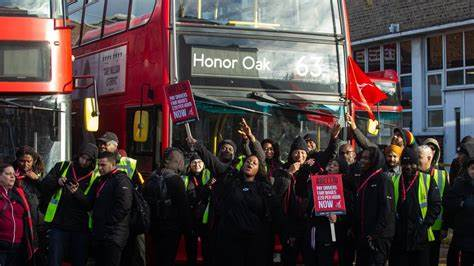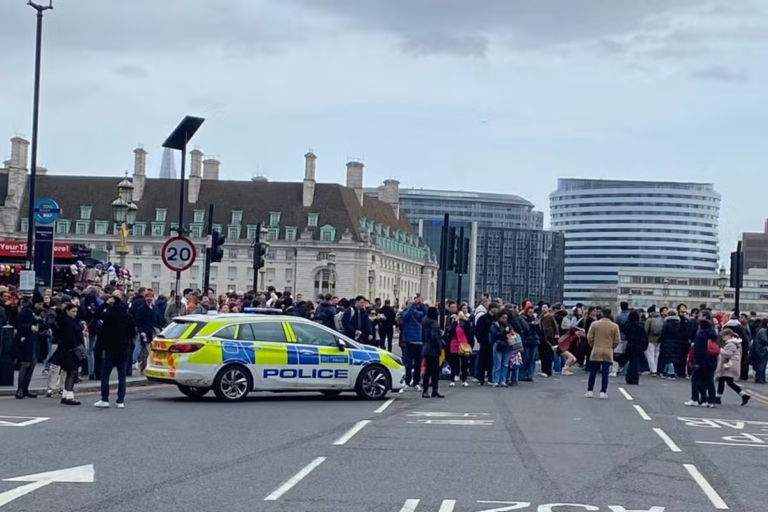Bus strikes have been making headlines across various cities in 2024, as transportation workers demand better pay, improved working conditions, and enhanced safety measures. These strikes have significant effects on daily commuters, city transport systems, and broader public services, prompting many to ask What are the reasons behind these strikes. When are they happening and how are they impacting communities In this article, we will explore the latest developments regarding bus strikes, focusing on key locations such as Philadelphia, London, and beyond.
What Are Bus Strikes and Why Do They Happen?
A bus strike occurs when public transportation workers such as bus drivers, maintenance workers, or union members walk off the job in protest over various issues. These issues can include wage disputes, safety concerns, benefits, and working conditions. Often, unions representing transportation workers will use strikes as a means to force negotiations with employers, such as city governments or transport authorities, when other forms of communication fail.
In 2024, many bus strikes stem from similar concerns, rising cost-of-living pressures, workplace safety, and fair pay. For example, in Philadelphia, workers from the Southeastern Pennsylvania Transportation Authority (SEPTA) are fighting for a safer work environment. A key issue is a significant increase in assaults on drivers, contributing to heightened concerns about personal safety. Union members have also expressed frustration with the lack of substantial raises, with SEPTA offering minimal pay increases despite the rising inflation and cost of living.
Notable Bus Strikes Around the World in 2024
In Philadelphia, union members from SEPTA are preparing for a potential strike after contract talks stalled. The Transport Workers Union Local 234, which represents over 5,000 workers, has been vocal about safety concerns. Reports of violent incidents, including shootings on buses, have prompted workers to demand better protective measures and a pay raise. With tensions running high, a strike could begin as soon as late November, unless both sides reach a compromise.
London: Abellio Bus Strike
In London, a series of strikes has been planned by staff from Abellio depots in Battersea and Twickenham. The workers, represented by the Unite union, are protesting against what they consider an unfair pay deal. The proposed 5% pay rise was seen as a “real-terms pay cut,” as it doesn’t keep up with inflation. These strikes, set to begin in January 2024, will affect control room staff who play a crucial role in managing bus operations. The workers argue that despite the critical nature of their jobs, their pay lags behind similar roles at other companies.
Impact of Bus Strikes on Commuters
Bus strikes often disrupt daily life, particularly for those who rely on public transportation to commute to work, school, or essential appointments. In London, for instance, the planned Abellio strikes will affect thousands of commuters, though Transport for London (TfL) has assured that services will be available, albeit with potentially higher congestion. The impact is more severe in cities like Philadelphia, where a large-scale walkout would shut down buses, trolleys, and subways, causing massive delays and disruptions for millions.
The Role of Unions and Workers’ Rights
Unions play a pivotal role in bus strikes. They provide a collective voice for workers and are often the driving force behind industrial action. The role of unions is especially significant in transport sectors, where working conditions can be hazardous and pay disparities are often widespread. Workers are calling for more than just pay increases they want better health and safety protections, particularly given the rising levels of violence against transit staff.
In addition to the concerns about pay and safety, workers often seek improvements in their working hours, job security, and benefits. For example, in SEPTA’s case, workers are demanding changes to the safety protocols in response to assaults that have become a growing issue. Many unions are also advocating for better mental health support for workers, recognizing the psychological toll of dealing with public service challenges.
What Are the Potential Solutions?
As the frequency of bus strikes increases, it’s clear that both employers and employees need to find common ground. While financial constraints often make it difficult for transit agencies to offer significant pay raises, agencies like SEPTA have acknowledged the need for increased safety measures. Solutions could include:
Better Safety Measures: This includes installing protective barriers for bus operators, increasing the presence of security officers, and providing more advanced protective equipment, such as ballistic vests.
Pay Raises: Addressing the growing gap between wages and the cost of living would be a critical step in reducing tensions. Transit authorities could negotiate more competitive pay packages that align with the work staff perform.
Improved Communication and Negotiation: Both unions and transit authorities should prioritize open communication. Regular negotiations and early intervention can prevent disputes from escalating to full strikes.
FAQs
Why are bus strikes happening?
Bus strikes typically occur due to labor disputes between transportation unions and employers. Issues often center around wages, working conditions, pension plans, and retirement benefits. In Spain, for example, unionized road transport workers, including bus drivers, have been striking to demand lower retirement ages and better working conditions.
What areas are most affected by bus strikes?
Bus strikes can impact both urban and intercity routes. In Spain, cities like Madrid and Valencia are most affected, with disruptions to local and long-distance bus services. Additionally, areas already hit by storms and flooding, such as Valencia, may experience compounded disruptions.
How will these strikes affect my travel?
During a bus strike, services will be limited or canceled. Passengers may face delays or route changes, especially during strike dates. It’s advisable to check with local bus companies for real-time updates on service availability. Plan alternative transportation, such as trains or car services, if available.
What can I do if there’s a last-minute strike affecting my journey?
In case of a sudden strike disruption, it’s crucial to contact your bus operator immediately to confirm cancellations or rebooking options. Alternatively, consider using other modes of transportation like trains, taxis, or car rentals.
How can I stay informed about bus strikes?
Stay updated by regularly checking your bus company’s website, signing up for email alerts, or using travel apps like Busbud, which offer notifications on transportation disruptions. Social media platforms can also be helpful for real-time updates.
In Summary
Bus strikes, particularly those happening in 2024, are a significant concern for cities around the world. The disputes often center around issues of safety, fair pay, and better working conditions. While these strikes can be disruptive, they highlight deeper issues within public transportation systems that need addressing. Commuters, transit authorities, and unions must work together to find sustainable solutions that ensure the safety and well-being of both workers and passengers alike.
To read more, Click Here .







